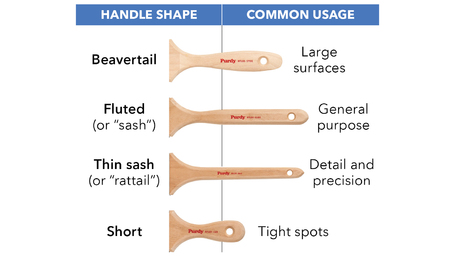*
I just visited an previous client who now wants her kitchen remodeled. I noticed she had a garbage disposal and asked if she wasn’t on a septic system. She replied yes, she has a septic system, and has had no problem feeding her disposal discharge into it.
My own house is on a septic system, and at the time of construction (1972) garbage disposals were not permitted.
I’ve heard of other folks with disposals on septic systems who have had no troubles. There’s also a disposal unit on the market designed for septic fields, although I don’t know if it’s any good.
What are your opinions rearding disposals and septic systems? (I have always told clients I will not include disposals in their kitchen projects if they are on septic fields).
Thanks for your inputs, Steve



















Replies
*
Thread on this subject within the last month or two. Quick summary - OK if the system is sized to accept the load. Check the archives.
*I prefer to not have a GD when on your own septic.Compost.
*Per above this has been discussed before so check the archives. Steve has it almost right. The things he left off are ground temperature and frequency of use. If this is in a cold area, like the Yukon, Interior Alaska or somesuch place generally the soil is so cold it is hard to keep the bugs alive. So, a system may "work just fine" except that it isn't meeting waste water standards in reality. In those cases the septic tank is just a holding tank that must be pumped regularly and a garbage disposal just puts an unnecessary load on the system.
*A septic system is sized according to a dosage/day system, that can be very conservative (in San Diego County it is figured at 225gal/day/person with 2 persons/bedroom) or very lenient (in Island County Wash. it is 150gal/day/person with 1 person/bedroom). Conservative designs can easily accept a garbage disposer. Otherwise they should be avoided as they can use a lot of water. NYC has only recently begun allowing disposers on the sewer system!I have had a disposer on a septic system in San Diego county for over 20 years, but I never put anything in it. I only use it for what falls in. This makes cleaning the sink easy. I have considered one on each side of the sink for this reason. The one I have now is a cheapo 1/2 hp. When it was new it was very quiet and plenty powerful for the stuff that falls in; but one blade came off so now it is way off balance and makes horrible noise if it is not full of water, so I only run it a few seconds at a time when water starts to back up. Still it does what I want it to. I keep my tank pumped regularly."She replied yes, she has a septic system, and has had no problem feeding her disposal discharge into it." What does this mean? I have heard people say they never pump their tanks and have never had a problem. That just means that they haven't destroyed the leach field YET. If her leach field handles all the water that a disposer takes along with everything else, and she pumps her tank before it gets too full she won't have a problem with the disposer. If she doesn't she will have a problem, disposer or no disposer.
*I take it from the posts I've read, none of you have ever dealt with a grease trap. I guess those are a regional sort of thing.Grease traps were common all through the 60's and 70's in my region, and I'd have to say 90% of them are still active. The kitchen sink on this type of system does not disharge into the septic, or the city sewer. It discharges directly into the grease trap. Grease traps here are like miniature septic systems, only for the kitchen sink/dishwasher exclusively. The concept was to keep grease and food from entering the septic or the city sewer. The grease traps were mostly installed on rural homes, and now most of these homes are on city sewer. I have seen homes that were originally on city sewer have these also.Just another piece of info for the topic.Just a thought...James DuHamel
*I was in the Army back in the days when GIs pulled KP (not sure they have it in the volunteer Army of today). In any case, every company had a mess hall and every mess hall had a grease trap. At the end of the day, a KP would ladel out the days accumulation of grease and put it in a tank for collection. Nasty job. Not something a homeowner would want to do very often. Resturants and commercial food preparation establishments in some areas are required to have grease traps to be connected to public sewers. They are serviced by commercial puming trucks. Not sure the grease accumulation at a residence would justify the expense of periodic commercial pumping. In any case, septic systems can handle some grease. A garbage disposal should not be a problem if the septic system was sized accordingly.
*Steve - FYI - yes, even in the modern "volunteer" Army they have KP, and it still sucks.